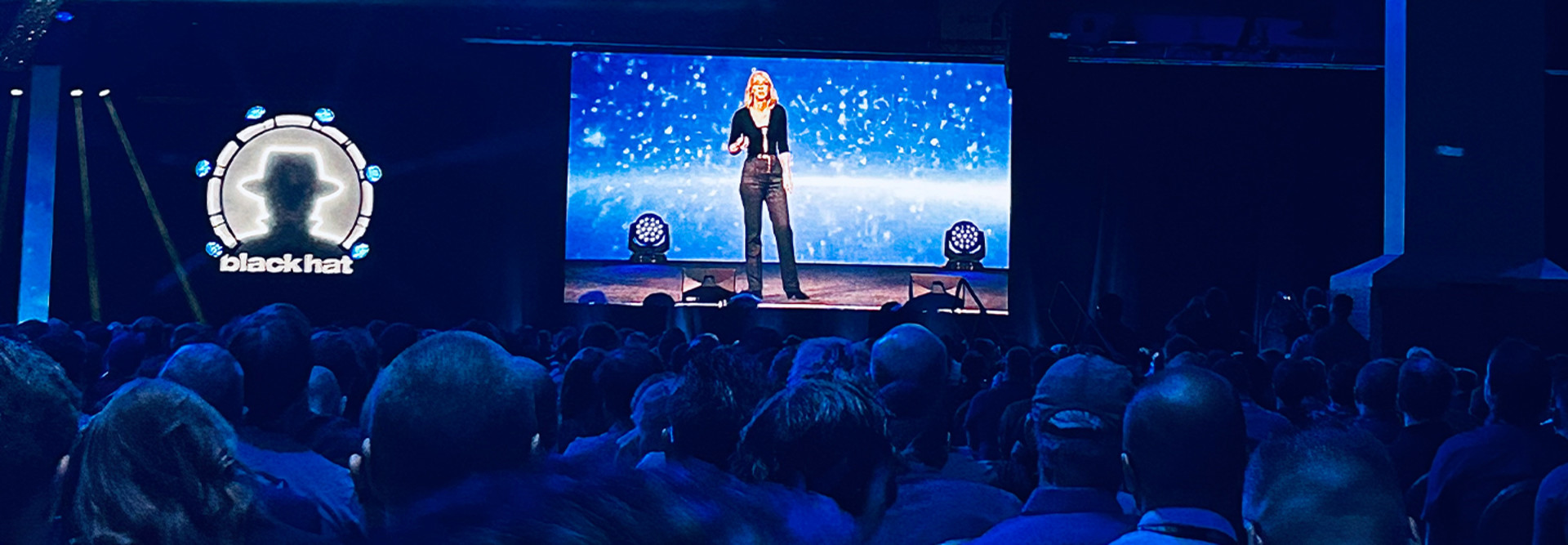Editor’s Note: An earlier version of this article inaccurately quoted Maria Markstedter. BizTech regrets these errors. This version has been updated to quote her accurately.
Artificial intelligence is having a massive impact on our society. “It’s forcing us, for economic reasons, to take all of our problems and turn them into prediction problems,” said Jeff Moss, founder of Black Hat. In an opening keynote for Black Hat USA 2023 in Las Vegas, experts shared just how dramatically generative AI is changing the game.
For Moss, AI’s most significant impact on the cultural conversation is that it forces us to hypothesize about problems we haven’t yet experienced, and it gives us answers in response to questions that generative AI itself may not fully comprehend.
All this compels IT leaders to respond proactively from a security mindset, especially because AI has merged two time zones, so to speak: It brings the future into the now.
LEARN: Discover how to mitigate risk in an AI-driven landscape.
How can you distinguish or identify authentic information is something I think we’ll be worrying about.”
Jeff Moss
Founder, Black Hat
There are questions of internet rights, privacy rights and whether the public will trust the information they receive. “How can you distinguish or identify authentic information is something I think we’ll be worrying about,” Moss said.
Now layer in the complexity of millions of users accessing AI. As Maria Markstedter, founder and CEO of Azeria Labs, noted in her keynote, “With the release of ChatGPT, these tools went from the 1 percent to the 99 as it became readily available.”
But how does AI’s development impact a security professional’s ability to navigate new attack surfaces? And how should the business tech space evolve with the AI revolution?
Here’s what IT decision-makers need to know:
Rethinking the Cybersecurity Landscape with AI in Mind
As Markstedter explained, OpenAI began a race toward market domination, with Google starting first and Microsoft charging ahead afterward. Now, AI is everywhere. “Microsoft has reportedly invested $13 billion into OpenAI. So clearly Microsoft is very invested into this AI race,” Markstedter said.
“But enterprises got skeptical because OpenAI is a black box and, by default, anything you feed into ChatGPT will become part of OpenAI’s data set. And companies don’t want to leak their sensitive data to an external provider,” Markstedter said.
This raises concern because while businesses are incorporating AI into their workflows and services, they don’t want to surrender control over their private data.
“We need to think about the security aspects and ramifications of allowing a truly autonomous system to take authoritative actions,” said Markstedter.
WATCH: Discover the potential of AI for business leaders.
But enterprises got skeptical because OpenAI is a black box and, by default, anything you feed into ChatGPT will become part of OpenAI’s data set. And companies don’t want to leak their sensitive data to an external provider.”
Maria Markstedter
Founder and CEO, Azeria Labs
How to Train AI and Adjust the Threat Model
While some companies have opted to ban OpenAI from employees’ work devices, experts at this year’s global security event said it’s better to regulate and train it.
Part of that training starts with understanding how AI works. “So, we need to learn about the very technology that is changing our systems and our threat model in order to address these emerging problems,” said Markstedter.
READ MORE: Lean how AI can streamline daily workflows.
With the AI market projected to grow to $28.5 billion by 2028, according to experts at Back Hat USA 2023, this process will undoubtedly continue.
To train AI, IT leaders can opt for Machine Learning as a Service. Or, they can rely on cybersecurity professionals within their organization who have AI skills -- particularly “those who understand AI systems enough to assess their attack vectors and invent new security guardrails, and those who leverage AI to improve and make their own work and research more efficient,” said Markstedter.
$28.5 billion
The amount the AI market is projected to grow by 2028
Source: marketsandmarkets.com, “Autonomous AI and Autonomous Agents Market Worth $28.5 Billion by 2028,” June 19, 2023
Why AI Helps Make the Case for Stronger Security
At Black Hat USA 2023, experts shared how the race to release new tech into the market can be at odds with security. Yet, both are critical and must progress simultaneously.
“No vendor wants to be viewed as insecure or easy to hack. After all, they need to protect their revenue and grow their user base,” said Markstedter.
That’s why AI — with its splashy public debut — helped intensify the case for security, and why businesses must value security from the outset.
To keep up with our coverage of Black Hat USA 2023, bookmark this page and follow us on X (formerly Twitter) at @BizTechMagazine or check out the official conference account, @BlackHatEvents.
Photography by Lily Lopate













